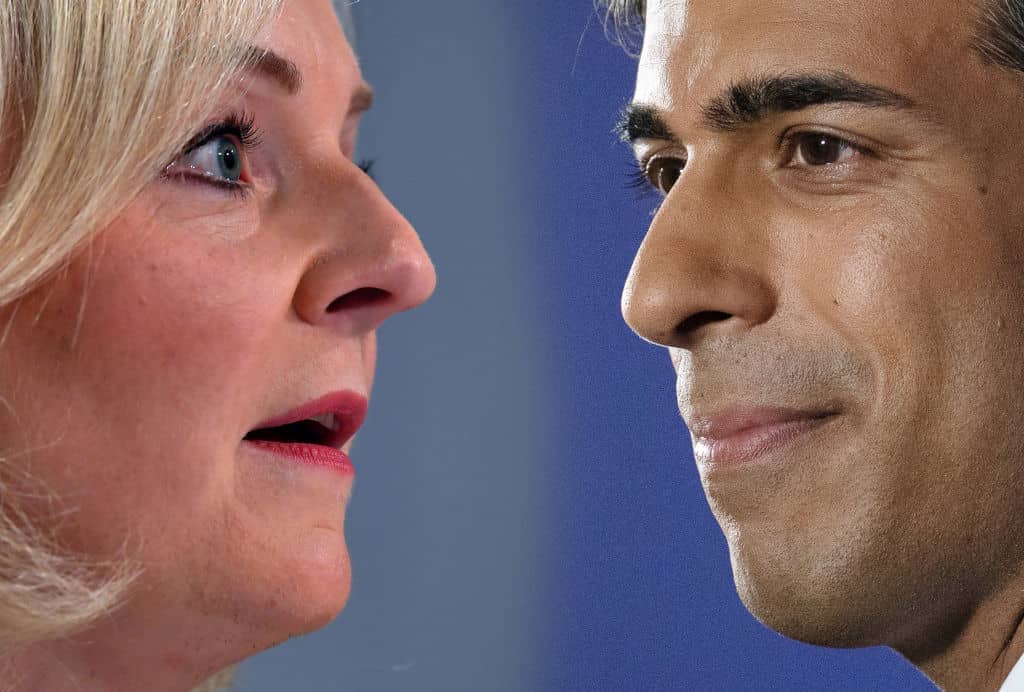Rishi Sunak and Liz Truss have only a few weeks to make their case before postal voting begins on 1 August. Sunak has vowed to be ‘the heir to Margaret Thatcher’ in a comment piece in the Daily Telegraph today, in which he promises to deliver a ‘radical’ set of reform, without expanding much on what that reform would look like. Meanwhile Truss joined BBC Radio 4’s Today programme this morning to double down on her plans to grow the economy, admitting that ‘twenty years of economic policy haven’t delivered growth’, even if the majority of this time has been under Conservative leadership.
But there’s a big economic elephant in the room: the crippling effects of inflation, and the limited scope of any future prime minister to get rising prices under control. The UK is unusual in having so much debt (about a quarter of it) linked to inflation – and on the old RPI index, which usually runs ahead of CPI. This made for the most expensive monthly debt interest payment in history (red dots below).
The Office for National Statistics revealed this morning that government debt interest payments reached a staggering £19.4 billion in June. This is the highest amount since records began, and is primarily driven by the huge rise of RPI, which sits at its highest level in 40 years.
As Truss has noted in both leadership debates, this is largely a result of loose monetary policy. The Bank of England is moving at a snail’s pace to raise interest rates, afraid of tipping the UK economy into recession. In the meantime, prices continue to soar, as do government debt-servicing payments which in the UK are index-linked to gilts.
Both Truss and Sunak have pledged to respect the BoE’s independence, though Truss did hint at being more critical of the Bank and re-examining its remit. But even a change in remit would not guarantee more action. Britain is on course for double-digit inflation, despite the Bank’s target of two per cent: this mismatch in remit and reality is mostly met by excuses from the Bank’s governor, Andrew Bailey, and a slow-and-steady attitude to rates rises.
Inflation is also eating away at the headroom both candidates would like to use — especially Truss — as part of their economic agenda. Truss is banking on better public finances than the Office for Budget Responsibility forecast back at the March Budget to help finance her tax cut pledges. This morning’s news won’t be giving her much comfort. Not only are debt-servicing repayments skyrocketing, but public sector net borrowing was higher in June than the OBR’s forecast: £22.9 billion compared to the predicted £22.3 billion. And total government receipts fell slightly below forecasts, sitting at £70.5 billion.
Higher than expected borrowing, lower than expected tax receipts, and soaring debt-servicing payments: these are difficult circumstances under which to be arguing that it’s time to borrow more. Frankly they’re difficult circumstances in the round: an important reminder that whatever candidates are pledging – tax cuts, growth policies, public finance management – they are going to need to be extremely detailed and factor in the circumstances around which they’re making grand promises.







Comments